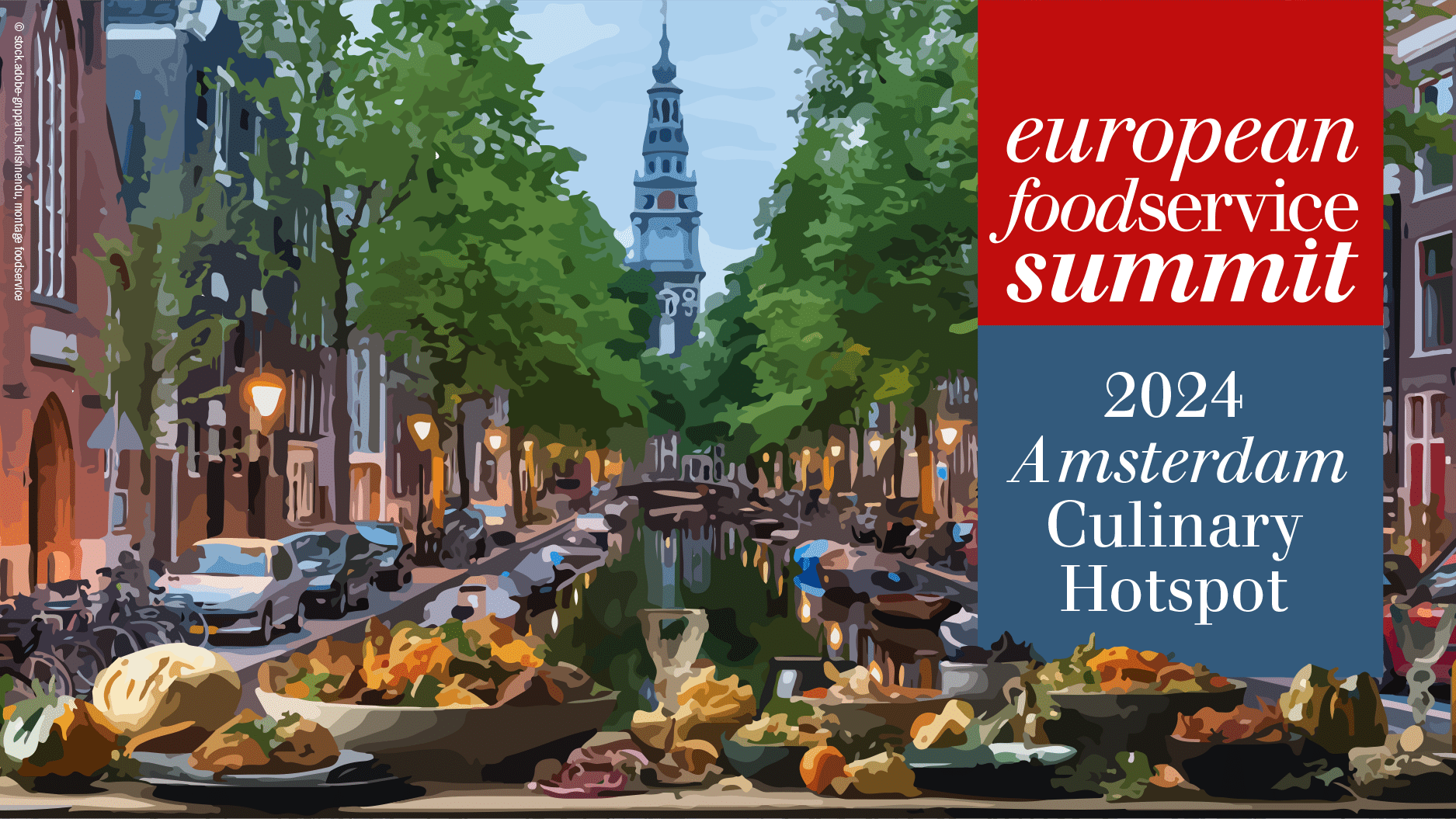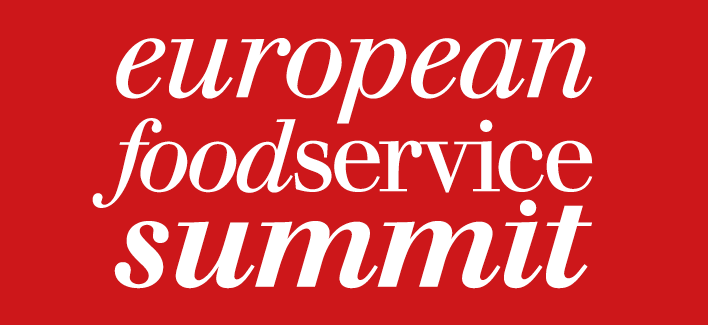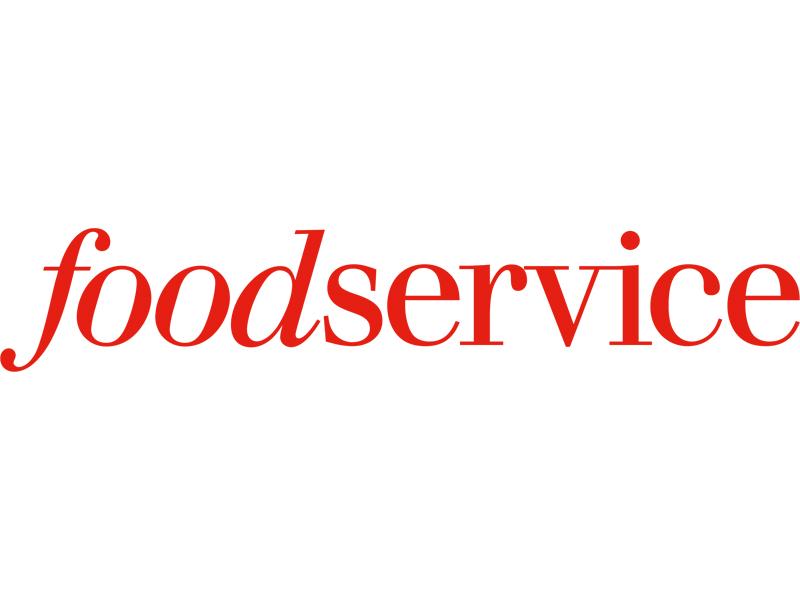Why you should come to Amsterdam in September

The 25th anniversary edition of the European Foodservice Summit alone makes Amsterdam a must-visit destination in September 2024. But there are more reasons to come. The Dutch capital has its own appeal, especially for restaurant professionals. We caught up with two local industry insiders to find out what’s happening on Amsterdam’s hospitality scene and what makes it stand out.
For this interview, we spoke with two top professionals closely related to the European Foodservice Summit:
- Walter Seib is the CEO Northern, Central & Eastern Europe of Avolta and a longstanding member of the EFSS Advisory Board. Though overseeing restaurant operations and openings at travel locations throughout the world, Walter is based in Amsterdam.
- Sven Sallaerts is the co-founder of the Dutch restaurant group Younique Concepts with currently nine individual units in Amsterdam – among them the innovative seafood restaurant Pesca. A regular Summit attendee for many years, Sven was a speaker at the European Foodservice Summit 2023, where he presented his company’s successful approach to Gen Z leadership.
From a restaurateur’s perspective, why is Amsterdam’s restaurant scene worthwhile to explore?
Walter Seib: Amsterdam has become an interesting destination for anyone in the food and beverage industry to visit. In the Netherlands, and particularly in Amsterdam, we keep our finger on the pulse of the world’s best F&B trends to create exciting, commercially viable concepts. In recent times, the city has become a destination for people that seek a high standard of living, and our vibrant food and beverage scene plays a big role in that.
Sven Sallaerts: There are many reasons for restaurant professionals to visit Amsterdam: Firstly, the city boasts a diverse food scene, offering inspiration for new ideas. Secondly, there is a strong emphasis on using local and eco-friendly ingredients, aligning with the growing trend towards sustainability. Lastly, Amsterdam is known for its competitive hospitality scene, making it a fertile ground for culinary innovation and new developments.
Could you give a specific example for such innovative developments?
Sven Sallaerts: There’s a trend towards blurring lines between bars and restaurants, with DJs spinning in dining spaces and innovative dining concepts like Multipla, where music seamlessly transitions the dining into dancing.
How has the restaurant and hotel scene in Amsterdam changed in recent years?
Walter Seib: Unlike Paris, Rome or London, Amsterdam is not known for its culinary traditions internationally. The Dutch entrepreneurial spirit, however, has transformed the essence of our capital to become one of Europe’s most sought-after and interesting F&B locations. As Dutch cuisine is still relatively small, we focus on products, ingredients and combining influences from abroad to create something new; a cuisine based on heritage, terroir, and locality.
Sven Sallaerts: There’s been an influx of new restaurants and innovative hotel concepts. The dining scene is moving towards a ‘back to basics’ approach and we witness a heightened focus on local ingredients, reflecting a shift towards authenticity and purity. We’ve also noticed a shift in beverage preferences, with cocktails becoming increasingly popular and even replacing traditional alcoholic offerings.
What recent food trends have caught your attention?
Sven Sallaerts: There’s a growing interest in plant-based and sustainable eating, with a focus on fresh, seasonal ingredients. Fusion cuisine is gaining popularity and we’re also witnessing the rise of pop-up restaurants, offering unique and exciting dining experiences. As in many other parts of Europe, technology is reshaping the restaurant scene with food delivery apps, digital menus, etc. Besides, Chinese cuisine is making a resurgence, and there’s a trend towards indulgent, ‘guilty pleasure’ snacks, often popularized on platforms like TikTok.
Walter Seib: Lately, I’ve noticed the industry gravitating towards world cuisines and experience F&B, to offer customers something far beyond the typical restaurant experience. I’ve also noticed an appetite for hyper-local F&B, casual dining and the buzzing atmosphere of restobars. It’s an exciting time for the F&B industry.
What were some notable restaurant openings in the last year?
Walter Seib: Barracuda, which opened its doors in September, is an affordable seafood restaurant in the industrial area of Amsterdam Noord, offering an approachable way to enjoy high quality seafood. And in October, Ventuno Sky Lounge opened on the 21st floor of the Ruby Emma Hotel in Amsterdam. It’s an Italian dinner club based on the early 20th century Italian American eateries. Both are definitely worth a visit.
Sven Sallaerts: Over the last year, several notable restaurants have opened in Amsterdam. These include Selva, known for its unique location and culinary offerings inspired by the flavors of Latin America, and Bar Gui, which has garnered attention for its Breton-inspired menu and innovative approach to dining. Although not opened last year, the easy-fine-dining venue Coulisse is also worth mentioning for its continued impact on the city’s culinary landscape.
Editor’s note:
Not mentioned here, but an equally noteworthy 2023 Amsterdam opening is Hasta La Vista Baby. It’s the most recent addition to the Younique Concept’s portfolio of restaurants combining an elevated casual fine-dining Spanish experience with a magnificent view of Amsterdam. It’s also the location for this year’s informal get-together on our EFSS pre-conference day!



